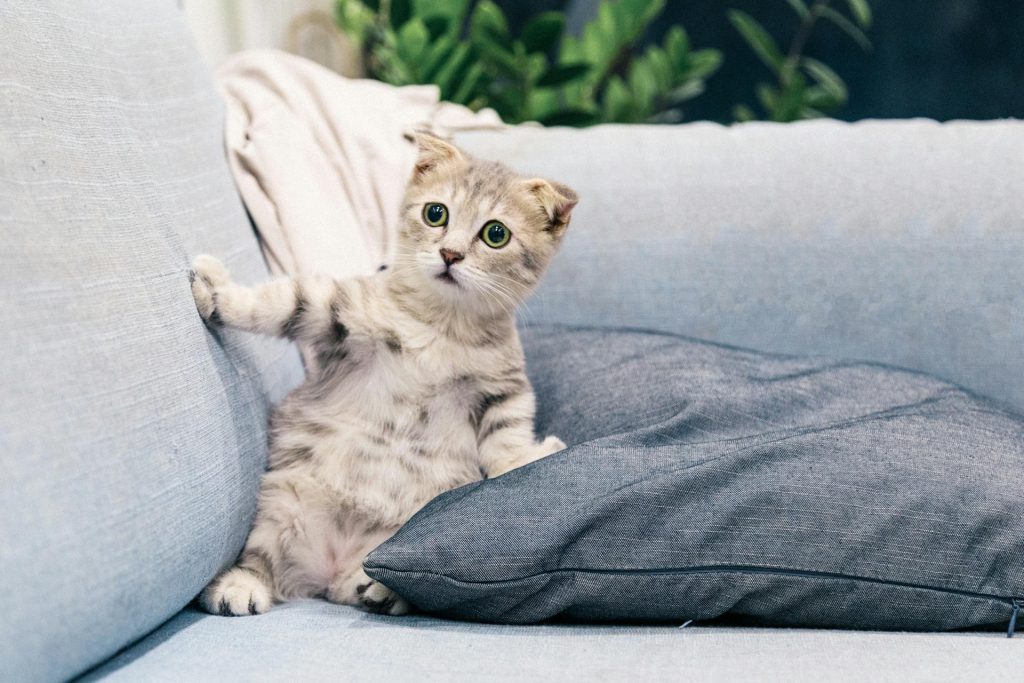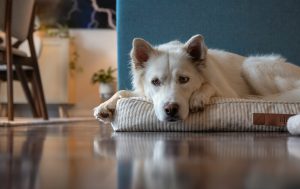
15 Helpful Ways to Reduce Pet Odors in a Small Apartment (Without Harsh Chemicals)
Let’s be honest—sharing a small apartment with pets comes with big smells. From litter boxes tucked into corners to dog beds that absorb every outdoor adventure, pet odors can take over fast. And when space is tight, even a mild scent can feel overwhelming. The good news? You don’t have to choose between living with your beloved pet and enjoying a fresh, clean home. These 15 helpful ways to reduce pet odors in a small apartment are easy to implement, free from harsh chemicals, and won’t require a full remodel. Whether you’ve got a dog, cat, or both, these tips will help you breathe easier and enjoy your home without holding your nose.
1. Wash Pet Bedding Weekly—No Exceptions
One of the most overlooked sources of pet odor? Their bedding. Whether it's a plush donut bed, crate liner, or your own couch cushions, fabric items your pet sleeps on will absorb oils, saliva, fur, and dander quickly. In a small apartment, that smell spreads fast.
Commit to washing all pet bedding weekly using fragrance-free detergent or a gentle vinegar rinse. For beds that aren’t machine-washable, vacuum and spot clean thoroughly. If possible, rotate between two covers so one is always clean while the other is in use. Clean bedding = cleaner air, every time.
2. Use Baking Soda in Litter Boxes and Carpeted Areas
Baking soda is one of the safest and most effective natural deodorizers—and it’s a must-have for apartment pet owners. Sprinkle a thin layer at the bottom of your cat’s litter box before adding litter to help neutralize odors between scoops. You can also lightly dust baking soda over rugs and carpeted areas before vacuuming to absorb lingering smells from fur and paws.
It’s completely safe for pets when used correctly, and won’t irritate sensitive noses like synthetic fragrances can. Just avoid using it near open wounds or where your pet may directly ingest large quantities.
3. Bathe and Brush Your Pet on a Consistent Schedule
Your pet’s hygiene directly affects the way your apartment smells. Dirt, dander, and natural oils build up fast—especially on indoor-outdoor pets. A consistent grooming schedule helps prevent odor at the source. For dogs, that usually means a bath every 4–6 weeks depending on coat type. For cats, regular brushing reduces excess fur and oily buildup.
Not all pets need frequent baths, but they do need routine brushing and occasional wipe-downs. You can use pet-safe grooming wipes or a damp cloth between baths to remove surface odors. According to the AAHA hygiene guidelines, frequent brushing also promotes skin health and minimizes shedding—another odor culprit in small spaces.
4. Invest in an Air Purifier with a HEPA + Charcoal Filter
Air purifiers aren’t just for allergy sufferers—they’re one of the most effective tools for reducing pet odor in small spaces. But not all purifiers are created equal. Look for a unit that includes both a HEPA filter (to trap dander and hair) and an activated charcoal layer (to neutralize odors).
Even a compact tabletop purifier can make a noticeable difference in a studio or one-bedroom apartment. Place it near litter boxes, crates, or pet beds for best results. Replace the filter regularly to maintain airflow and odor absorption. It's a small investment that pays off every single day.
5. Open Windows Daily (Even in Winter)
In an airtight apartment, odors tend to settle and multiply—especially during cold months when windows stay shut. Just 10–15 minutes of fresh air a day can make a big difference. Crack open a window in the morning and evening, and use a fan to circulate air if needed.
Ventilation helps remove airborne particles, reduce humidity (which amplifies odors), and keeps your home from smelling stale. Even better? It boosts your mood—and your pet’s too. According to Woodlawn Veterinary Hospital, fresh air also helps minimize respiratory irritation in sensitive animals.
6. Clean Food and Water Bowls Daily
Pet bowls may not seem like a major odor source—but they can harbor bacteria, saliva buildup, and mold if left unwashed. This not only affects your pet’s health, but also creates sour or musty smells in your apartment—especially in warm or humid weather.
Wash both food and water bowls daily with hot, soapy water or run them through the dishwasher (if safe). Stainless steel or ceramic bowls are less porous and more odor-resistant than plastic. Wipe the feeding area as well to remove drips and food particles that can go rancid quickly.
7. Deep Clean Litter Boxes Weekly (Not Just Scoop)
Scooping the litter box daily is crucial—but even with the best intentions, odors will build up unless you clean the box itself. At least once a week, empty the litter entirely and scrub the box with warm water and pet-safe soap or vinegar. Avoid bleach, which can react with ammonia from urine.
Rinse thoroughly and dry before refilling with fresh litter. While you’re at it, wipe down the walls, floor, and mat around the box. In small apartments, even trace amounts of litter dust and urine can carry odor into the entire home. A clean box = a fresh apartment.
8. Use Enzyme Cleaners for Accidents and Stains
Regular cleaners may remove the look of a mess, but only enzyme-based cleaners can break down the biological compounds that cause lingering smells. These are essential if your pet has had an accident—even once. Dogs and cats will return to the same spot if they can still smell their scent.
Use enzyme sprays on carpets, furniture, tile grout, and even walls if your pet has marked vertically. Let it soak for the full recommended time and blot thoroughly. Many pet parents notice odor improvements within hours—and permanent odor reduction within days.
9. Sprinkle Pet-Safe Deodorizers in Hidden Corners
Even when your apartment looks clean, certain areas can trap smells—like under the couch, behind the litter box, or between furniture and the wall. Lightly sprinkle baking soda, activated charcoal granules, or commercial pet-safe odor eliminators in these “dead air” zones.
You can also place mesh sachets of dried lavender, rosemary, or cedar chips where pets can’t reach. They absorb smells naturally and leave a subtle, pleasant scent. Just make sure they’re safely tucked away and not accessible to chewing pets.
10. Vacuum Daily—Even If You Don’t See Fur
In small apartments, pet hair, dander, and skin oils accumulate quickly—even on hard floors. Vacuuming daily doesn’t just keep things tidy—it prevents odor buildup in rugs, upholstery, and under furniture. A lightweight stick vacuum or robot vacuum makes this task painless and easy to fit into your routine.
Focus on high-traffic zones, pet hangouts, and tight corners. For upholstered furniture, use a handheld attachment to remove embedded fur and odor-trapping particles. You might not notice a smell after a single missed day—but by the end of the week, your nose will know.
11. Rotate and Clean Toys Regularly
Dog and cat toys—especially plush or rope types—can develop strong odors over time. Saliva, food particles, and dirt build up fast. To reduce odor and keep things hygienic, wash soft toys weekly in a gentle detergent, and wipe down rubber or plastic toys with a vinegar-water solution.
Try creating a small toy rotation system: keep only a few toys out at once and swap in fresh ones every few days. Not only does this cut down on clutter and smells, it also keeps pets engaged by making toys feel “new” again.
12. Wipe Down Paws After Walks
Every time your dog comes back inside, they bring in more than just muddy paw prints. They also track pollen, bacteria, and smells from city sidewalks or grassy parks. Over time, those odors get embedded in floors, rugs, and pet bedding.
Keep a towel or pet-safe wipe station near the door to quickly clean paws before your dog runs through the apartment. Not only will this reduce odor, but it will also help keep allergens out and prevent licking or paw irritation caused by debris.
13. Use a Dedicated Pet Cleaning Caddy
Staying on top of pet odors is easier when everything you need is in one place. A small cleaning caddy or bin filled with pet-safe supplies—like enzyme spray, microfiber cloths, a brush, baking soda, and wipes—lets you clean up messes right when they happen.
Storing this kit in an easy-access spot (like near the entryway or under the sink) means you’ll actually use it. The faster you clean up accidents or odor-prone areas, the less time smells have to settle into your home.
14. Try Pet-Safe Simmer Pots or Diffusers
Instead of masking pet smells with heavy sprays or plug-ins, create your own fresh scent with a pet-safe stovetop simmer pot. Boil water with lemon slices, rosemary, cinnamon sticks, or mint to lightly scent the air without using chemicals.
You can also use an essential oil diffuser—but double check that the oils you use are non-toxic to pets (many are not safe for cats especially). A few drops of vet-approved oils like lavender or chamomile can help freshen your apartment without harming your furry roommates.
15. Be Proactive—Odor Prevention is Easier Than Removal
The best way to reduce pet odors in a small apartment is to stop them before they start. That means sticking to cleaning routines, wiping paws, washing bedding, and addressing smells at their source instead of covering them up later.
Consistency matters. Don’t wait for guests to notice a smell before you spring into action. A few minutes a day of proactive maintenance will keep your apartment smelling fresh, calm, and completely pet-friendly.
Final Thoughts
You don’t need bleach, candles, or gimmicky sprays to enjoy a fresh-smelling apartment with pets. With a few practical habits and smart swaps, you can reduce pet odors in a small apartment without sacrificing safety or comfort. Start with a few tips that feel doable, and build up from there. The more consistent you are, the less odor you'll ever have to fight. Clean air, happy pets, peaceful home—it’s absolutely possible.
Frequently Asked Questions
What causes the strongest pet odors in small apartments?
The biggest culprits are unwashed bedding, litter boxes, pet accidents, and poor ventilation. In smaller spaces, smells concentrate quickly—so even mild odors from fur, saliva, and paws can feel overwhelming if not managed regularly.
Are commercial air fresheners safe to use around pets?
Most aren’t. Many commercial sprays and plug-ins contain chemicals or essential oils that can irritate a pet’s respiratory system. Stick to pet-safe options, natural simmer pots, or HEPA/charcoal air purifiers to stay on the safe side.
How often should I deep clean my litter box to control odor?
Weekly deep cleaning is ideal. That means fully emptying, washing with soap or vinegar, rinsing, and refilling with fresh litter. Daily scooping is still essential, but full box cleaning helps remove odors embedded in the plastic.
What’s a good natural deodorizer that’s safe for cats and dogs?
Baking soda is safe and effective when used correctly. You can also try activated charcoal sachets or DIY scent bags with lavender or cedar stored out of reach. Always check ingredients before using anything near your pet.
Why does my apartment still smell like pets even when it looks clean?
Odors linger in fabric, rugs, and air vents—and often come from areas you don’t see, like under furniture or behind appliances. Use an air purifier, clean hidden corners regularly, and wash soft surfaces like bedding, curtains, and toys to fully eliminate smells.

Join the Busy Pet Parent Newsletter!
Get easy routines, time-saving tips, and the latest gear reviews—delivered straight to your inbox.
Perfect for busy pet owners, apartment dwellers, and anyone who wants a happy, healthy companion (without the stress).
Exclusive guides & checklists
Product recommendations & deals
No spam—unsubscribe anytime!




